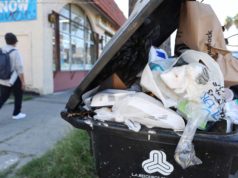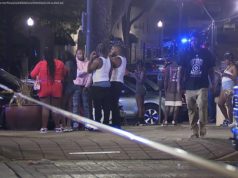Three years ago, the Manhattan district attorney’s office donated $38 million to clear the backlog of untested rape kits around the country.
[What you need to know to start the day: Get New York Today in your inbox .]
By February 2017, Maisha Sudbeck had made peace with the idea she would never get justice. It had been five years since she was raped in Tucson by a man she had met online. The police had brushed the case off as a he-said-she-said standoff. For years, her rape evidence kit had sat untested. With two children and a new marriage, she had moved on with her life.
Then a detective knocked on her door.
The detective said a grant from the Manhattan district attorney’s office had helped the Tucson authorities clear a backlog of untested rape kits, which preserve the DNA evidence left by an attacker. After five years, Ms. Sudbeck’s kit had finally been tested, the detective said. And the police had found a match in a database of people with criminal records: a man named Nathan Loebe.
“My chapter was reopened,” Ms. Sudbeck said. “Having my kit finally tested was a catalyst for hope.”
In February, Mr. Loebe was convicted of sexually assaulting seven women. Ms. Sudbeck testified against him at trial.
Ms. Sudbeck’s case is one of thousands that have gotten a second look from investigators since the Manhattan district attorney, Cyrus R. Vance Jr., committed $38 million in forfeiture money to help other jurisdictions test rape kits. Since the grants began being distributed in 2015, the evidence kits have led to 165 prosecutions in cases that were all but forgotten. So far, 64 of those have resulted in convictions.
Rarely have public dollars from a local prosecutor’s office been so directly tied to results with such national implications. The initiative has paid to get about 55,000 rape kits tested in 32 law enforcement agencies in 20 states, among them the police departments in Las Vegas, Philadelphia, Miami, Memphis, Austin, Tex., and Kansas City, Mo.
Nearly half produced DNA matches strong enough to be added to the F. B. I.’s nationwide database of genetic profiles. About 9,200 of those matched with DNA profiles in the system, providing new leads and potential evidence.






